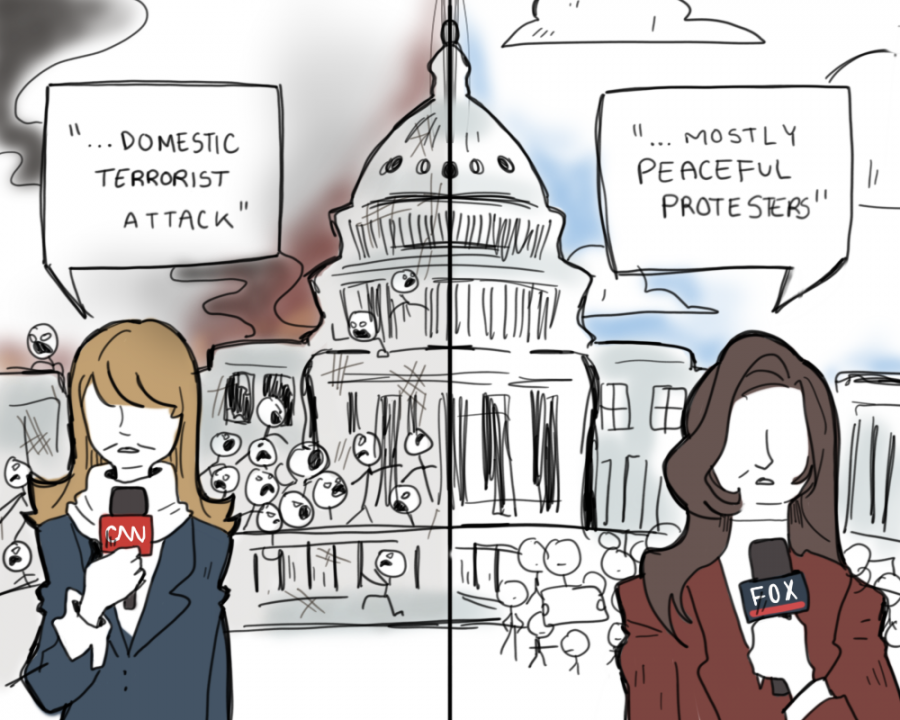Media bias pushes country further apart in politically divided era
February 12, 2021
Words can be powerful. Especially when they can reach millions of people in minutes.
Large news entities’ access to mass audiences gives them the ability to impact the opinions and actions of many. With subjective reporting and media bias, accurate news has become more important than ever, Librarian Kristen Jacobson said.
Bias and disinformation is a frequent problem in news sources, Jacobson said. However, she argued those that spread this disinformation are not reporting real news.
“I think some people have trouble distinguishing between authentic news programming and this sort of partisan political programming,” Jacobson said. “Many people [probably] prefer the second to a nuanced, fact-driven approach.”
The problem with these news sources is they lead the watchers and readers into echo chambers where they only hear information that agrees with their opinions, Jacobson explained. These echo chambers are common on social media and make it difficult for thoughtful discussion to occur, Jacobson stated.
In politics, biased and false sentiments are disseminated and directly impact people’s perception of matters small and large, junior Milan Chander stated.
“When prominent political figures use the media for personal gain, it further divides [our] already divided nation,” Chander said. “The use of bias in the media has been problematic to the point that it has created turmoil and turned tension into tumult.”
Similarly, sophomore Nathaniel Betts said convoluted news is a problem in the media because of the difference in viewpoints of various news sources, which often leads to confusion and misjudgment.
“The problem with biased news is that it doesn’t inform people of all the details,” Betts said. “It can make people become so sure of their own views and foster communities with similar viewpoints.”
Both Betts and Chander agreed media bias played a major role in the events that took place at the Capitol through the use of false information to rile people up and sensationalist framing to receive attention.
“Trump’s use of the media directly increased political tensions and caused the riots at the Capitol,” Chander said. “The president himself gave orders to his followers to interject in the process of ensuring continuity for the same democracy he was elected to uphold and lead.”
Jacobson argued that the events at Capitol Hill were impacted by bias and manipulation of media, exemplifying why students should use reputable news sources.
“It’s really tempting to send something outrageous to get a reaction from your social media followers without checking to see whether it’s actually true,” Jacobson said. “Ultimately, it’s important for us as individuals to check our sources and depend on solid news outlets for information.”
Junior Anna Heppner believes the best way to combat media bias is to watch and read both right- and left-leaning sources. It is also incredibly important to check that a claim is true before spreading it, she said.
“I think Fox and CNN both do a good job of educating us, but if you want to have a political discussion, you should [fully understand] what you are saying,” Heppner said.
Betts said the way to combat inflammatory reporting is to meet it head-on; since this will continue to be a prevalent problem, it is crucial to look at biases on both sides of events and make our own conclusions based on all information presented.
“Biased news isn’t made up of things that didn’t happen, it’s poor pieces of evidence that lead to poor claims,” Betts said. “When people spread a story, I want to believe that they see it as important and worthy, that they believe it is for the good.”



